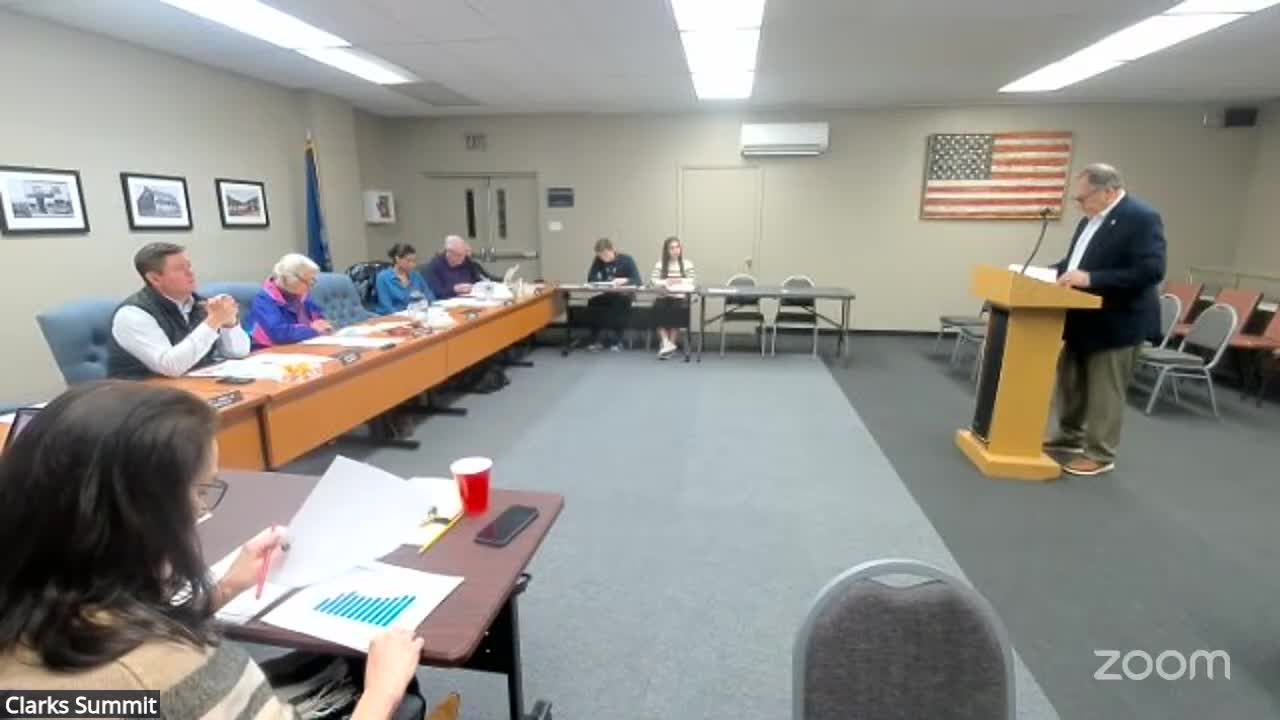Regional wastewater official warns rising repair costs and aging equipment are driving a jump in municipal contributions
Get AI-powered insights, summaries, and transcripts
Subscribe
Summary
A regional wastewater authority representative told the Summit Borough Council that rising maintenance costs, aging equipment and wetter weather are straining reserves; the authority plans $1.3 million in capital projects and recommends multi‑year budgeting to smooth rate impacts.
Unidentified Speaker 2, a representative to the regional wastewater authority, told the Summit Borough Council on Nov. 19 that rising repair and replacement costs and increased inflow from wetter weather have sharply increased operating expenses and put pressure on municipal contributions. The presenter said the authority plans approximately $1.3 million in capital projects net of grants this year, including $800,000 for a biosolids building upgrade and a roughly $1 million system replacement with about $500,000 expected from grants.
The authority representative summarized 10 years of data showing regional EDU (equivalent dwelling units) growth of about 4.3% from 2016–2026 and about 1.9% growth specific to Clarks Summit. He said operating revenues have been roughly flat since 2016 while operating expenses have risen substantially, and that repairs and maintenance spending has increased from historic levels (the presenter cited earlier averages of roughly $17,430 and much higher projected current spending).
"Operating expenses are increasing faster than revenues because of increased maintenance expenses and certainly inflation," Unidentified Speaker 2 said, adding that energy and chemical costs and insurance have contributed to the increase. He described the authority's effort to create a capital‑expenditure risk model that would prioritize equipment replacement by end‑of‑life and potential service interruption, and recommended building capital reserves to avoid taking on debt for major projects.
Council members asked whether the current rate increase is a one‑time level adjustment or part of a sustained upward trend. Unidentified Speaker 4 said the finance committee would be comfortable with a predictable, small annual increase rather than a single large hike; Unidentified Speaker 2 agreed, recommending multi‑year forecasting so the authority can foresee and plan for million‑dollar replacements.
The presentation and council exchange did not include a formal vote. Council members asked the authority to provide more forward‑looking projections and to continue pursuing grant funding to reduce municipal impacts. The authority representative said staff would continue to develop the capex risk model and grant strategy and that he was available to answer further questions.
Next steps: Council requested additional forecasting and grant‑funding details to inform whether future municipal contributions can be smoothed over several years.
